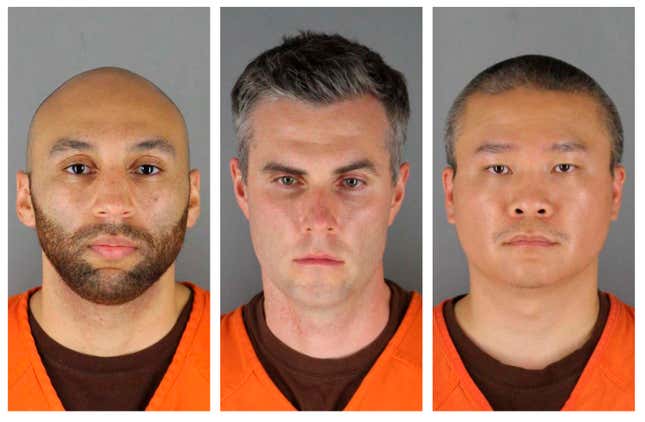
The three former Minneapolis cops who did nothing while Derek Chauvin killed George Floyd have been convicted in federal court of violating Floyd’s rights.
J. Alexander Keung, the only Black officer on the scene, Tou Thou, an officer of Asian descent who is seen on bystander videos preventing witnesses from helping Floyd, and Thomas Lane, a white officer who asked Chauvin if Floyd should be repositioned but did nothing to stop Chauvin from kneeling on Floyd’s back, were all found guilty of failing to provide medical aid. Keung and Tau were also convicted of failure to intervene–perhaps the most significant charge because it affirms that under federal law, cops can be convicted for not acting to stop their colleagues from committing crimes.
From the New York Times
Legal experts and racial justice activists had been closely watching the case, saying it could have more ramifications for policing than even Mr. Chauvin’s murder convictions. At the heart of this case was a more widespread problem, experts say, than a single officer’s act of violence: the tendency of officers to stand by when they witness a fellow officer committing a crime.
This case is believed to be the first time the federal government has charged police officers for failing to intervene against a more senior officer who was using excessive force, according to Christy E. Lopez, a professor at Georgetown University Law Center. She has worked with police departments on training officers about their constitutional duties to step in when they see colleagues breaking the law.
She said the guilty verdicts could significantly change law enforcement culture, compelling agencies to make sure that officers are properly trained and are upholding their duties.
All three officers are now in jeopardy of spending life in prison when they are sentenced, although federal guidelines for their crimes allow a judge to impose a sentence of any length, which could also mean they spend very little time in jail.
The three are also still awaiting trial in state court in Minnesota on charges of aiding Chauvin in Floyd’s murder.

